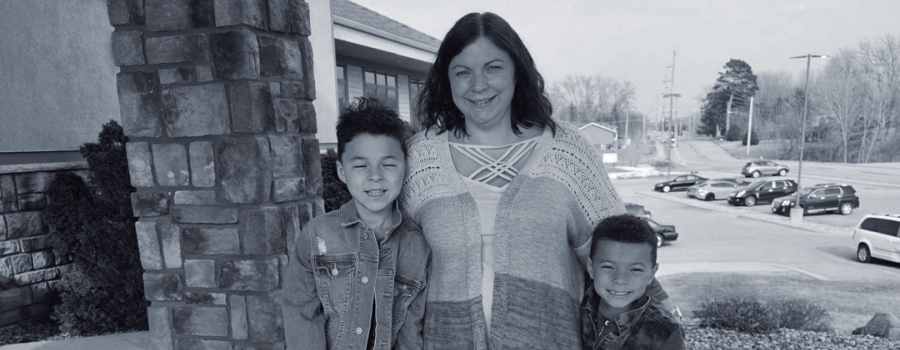America is currently experiencing an unprecedented need for mental health care services, particularly for children, with children’s mental health being declared a national emergency in 2021. Parents and caretakers are struggling to find care for their child- from inpatient hospital stays to just a session with a licensed counselor.
But in a small pocket of southern Minnesota, there is hope. Since 2015, Nexus-Gerard Family Healing has been providing outpatient and community mental health treatment services within the Austin and Albert Lea area. They originally started work with children in the Austin Public School District, but branched out to adults as well, offering a variety of different treatments including Trauma-Focused Cognitive Behavioral Therapy (TF-CBT). Parents can have their children meet with a therapist right at the school.
For single mothers like Melissa, who is also a Nexus-Gerard employee, this service is vital. Because of these programs, her sons, ages 11 and 7, can see their counselors once a week directly at the school, or over Zoom, which they did during quarantine in 2020. As an employee, she was aware of the services, but decided to utilize them after the school district related to her how the counselors come directly to the schools – Melissa wouldn’t have to worry about taking time off work to get them to appointments.
“It definitely helped over COVID-19,” said Melissa, “it helped him be able to express his feelings about missing his classmates…it was nice for him to be able to talk to her during that time.”
Healing from Trauma
However, Melissa started utilizing these services for her boys before the COVID-19 Pandemic. While at the ages of 2 and 5, her sons had been witnesses to domestic violence and verbal abuse and threats towards Melissa at the hands of their father. Witnessing a traumatic event like that, even when very young, can have negative effects on anyone. Her sons began to express behavioral issues as they got older, despite the youngest only being two when the event occurred.
“I knew when my oldest started to have some behavior issues at school…that he needed to talk about what he’d seen” Melissa said. “He needed someone to talk to. While my youngest didn’t exactly remember what had happened, he seemed to remember the traumatic part of it. Once we discovered he had ADHD and began medication for that, the school offered the services to him as well.”
Providing Accessible Care
Melissa has been a Nexus employee for 14 years. She’s held various positions, first as a unit counselor working directly with the youth at Nexus-Gerard, then as Teacher’s Assistant at Nexus-Gerard’s on-campus school, and now in administration. “Because of my job, I do know some of the therapists who work in the schools, which helped me in deciding it’s a good place for them to be seen,” Melissa shares about her comfort level and experience with her sons’ care.
Even if she wasn’t a Nexus-Gerard employee, Melissa would still be utilizing these services for her sons. “I would definitely recommend any parent take advantage of this service,” she said. “It’s so convenient for parents to let their kids be seen at the school, you don’t have to worry about getting them to appointments, which is big for me.”
Melissa has seen positive changes in her sons, particularly her oldest, since he’s been using these services.
“I just feel like he can talk about and identify his feelings more, and he’s just more open about how he’s feeling – he can say ‘I’m angry’ or ‘I’m upset’. He can get his feelings out and talk about the situation with his dad, who he doesn’t see.”
Because of Nexus-Gerard's Outpatient/Community Mental Health Services, children who have experienced trauma, such as Melissa’s sons, have access to professional counseling that helps them process their feelings and find healthy ways in dealing with their negative experiences. Additionally, parents like Melissa don’t have the added stress of setting up appointments, taking time off work or school, and transporting their children. This helps make mental health care accessible and provides hope to families and communities who would have limited or no resources to seek critical mental health care services.
